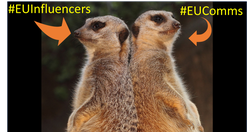Overview: Online Community Management
Convening a community can be the most powerful communication tactic there is.
Online communities offer enormous opportunities to the right organisation. Community members are far more likely to read your content, think of your organisation, give you feedback, share your content, attend your events, get involved in your programmes, and buy your products.
On the other hand, convening a community is hard: few people have time for more than a couple of online platforms in their lives, so attracting them to yours means you need to be uniquely useful to them.
That generally requires a change of mindset and new internal processes across the organisation, because it’s not your community - it's theirs. And getting their involvement means really listening to what they have to say, and then visibly acting on it.
I built the EU Commission’s first online community in 2002, and have built many more successful ones since. If you’d like to chat, get in touch.
More services: start with Communication strategy.
Relevant resources

a system that could bring some structure to the legislative advocacy ecosystem — listing all bills online; organizations and constituents would create accounts and post input in a structured, transparent way with outward anonymity but real names and addresses sent with messages to lawmakers in a way that could be easily processed by offices... th…

Engaging Europeans with the EU requires a new Brussels Bubble culture - fourth of several posts written in reaction to Luc van den Brand’s Reaching out to EU Citizens: A New Opportunity.
If you care about EU democracy you need to care about European media, particularly as the upcoming US media invasion gets underway. They'll be pushing on an open door when they get to Brussels.